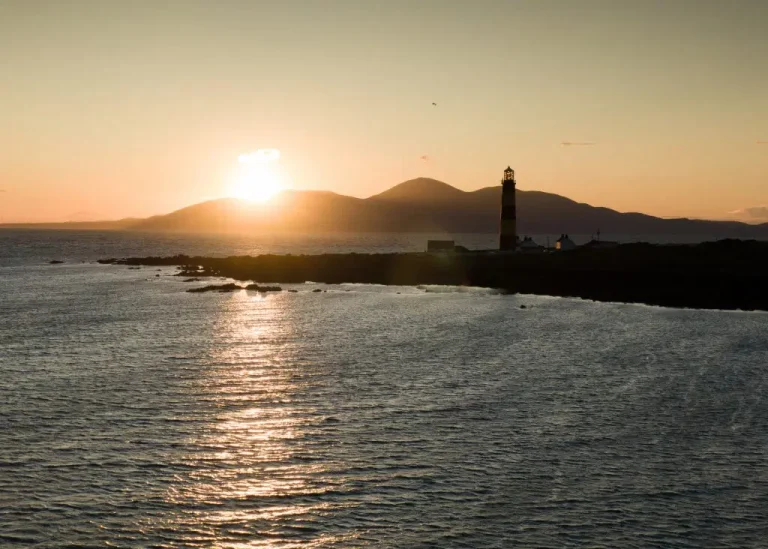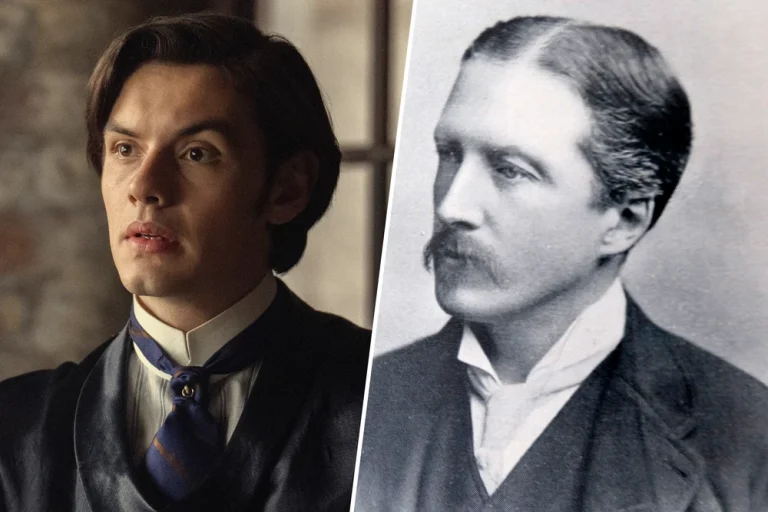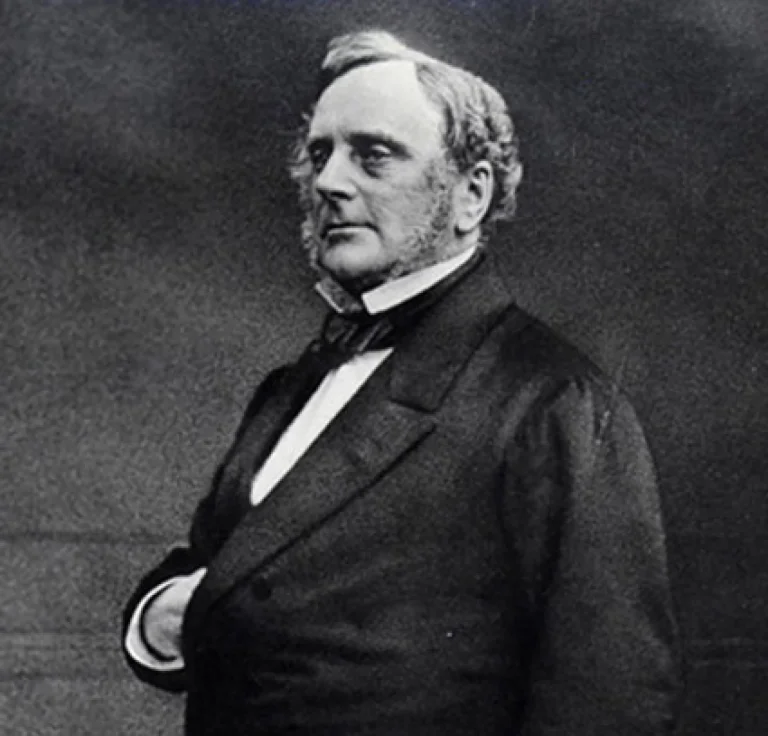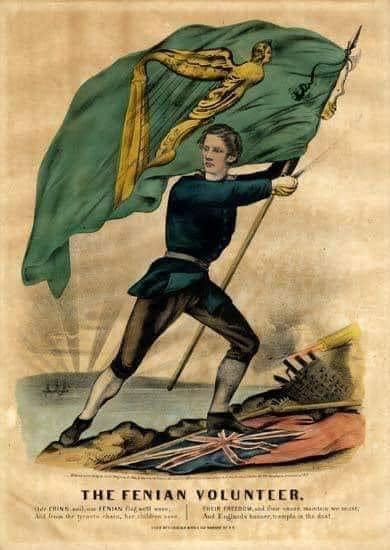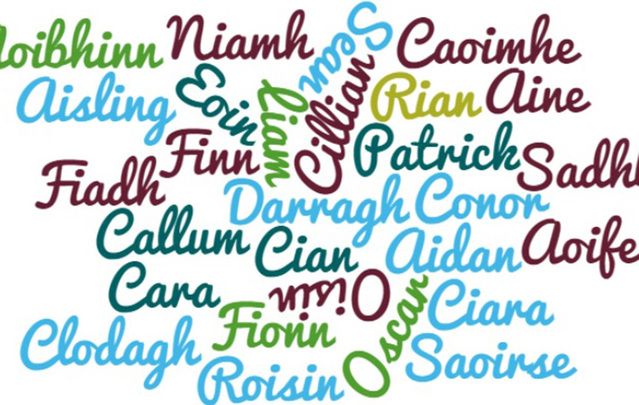

From the mist-shrouded glens to the wild Atlantic coast, Ireland’s rich tapestry of history, myth, and language has woven itself into the very fabric of its names.
Whether you’re eagerly anticipating a new addition to the family and seeking that perfect moniker, or simply captivated by the lyrical beauty and profound meanings embedded within Irish names, you’ve landed in the right place.
These aren’t just labels; they’re echoes of ancient warriors, celebrated poets, and the very soul of the Emerald Isle.
Dive with us into the fascinating world of names from Ireland, where every sound tells a story.
Unearthing the Essence: What Makes an Irish Name?
The allure of Irish names lies in their deep connection to the Gaelic language and centuries of oral tradition. Unlike some modern trends, these names often carry literal meanings, painting vivid pictures of attributes, natural elements, or legendary figures. They are rooted in a culture that cherishes storytelling, reverence for nature, and a strong sense of identity. When you choose an Irish name, you’re not just picking a sound; you’re embracing a piece of history, a whisper of mythology, and a connection to a land renowned for its charm and resilience.
Thinking about a little bundle of joy on the way, or perhaps you’re simply inspired by the profound beauty of Irish names and their meanings? We’ve got 100 ideas for you!
Below, you’ll discover 100 of the Most popular baby names Ireland has to offer, presented with their meanings and pronunciations – a balanced mix of 50 girl names and 50 boy names.
See if your favourite made the cut, or perhaps discover a new gem that resonates with your spirit! This carefully curated selection draws from the trends that shape Top 100 baby names Ireland sees year after year, giving you a real insight into the choices of Irish parents today.
Lyrical Legacies: Irish Girl Names
Irish girl names are renowned for their delicate beauty and powerful underlying meanings, often linking to ancient goddesses, legendary figures, or qualities like radiance and gentleness. For those pondering the Most popular names in Ireland girl lists, you’ll find many beloved choices here.
- Aoife (ee-fa): This name means “beautiful, radiant or joyful,” likely deriving from the Gaelic word ‘aoibh’ meaning ‘beauty’ or ‘pleasure.’ In Irish mythology, Aoife is known as the greatest woman warrior in the world. She gave birth to the mythological hero Cú Chulainn’s only son, Connlach, and was the daughter of a king of Connacht. Legend has it, her marriage was arranged by St. Patrick himself.
- Caoimhe (kwee-va or kee-va): From the Gaelic word “caomh,” this name means “gentle, beautiful or precious.”
- Saoirse (ser-sha): This name means “freedom” or “liberty.” It carries strong patriotic overtones and has only been in widespread use since the 1920s, a testament to its modern resonance as a Modern Irish girl name.
- Ciara (kee-ra): The feminine form of Ciarán, this name comes from the Gaelic word “ciar,” which means “dark.” It implies dark features, like hair or eyes. In history, St. Ciara was a distinguished figure who established a monastery in Co. Tipperary during the seventh century.
- Niamh (neev or nee-iv): Meaning “radiance, luster or brightness.” In Irish mythology, Niamh was the daughter of Manannán, the god of the sea – she was known as ‘Niamh of the Golden Hair’ and was usually depicted riding on a white horse. She was the lover of poet-hero Oisín; together they lived in Tír na nÓg, the land of eternal youth.
- Róisín (ro-sheen): This name means “little rose,” and has been used in Ireland since the sixteenth century. When Irish patriotic poetry and song was outlawed in Ireland, Irish bands would disguise their nationalistic verses and love songs, and sing about Roisín Dubh (“Dark Rosaleen”) as the poetic symbol for their country.
- Cara: In Irish, Cara simply means “a friend.“
- Clodagh (cloda): Named for the River Clodagh, or Clody River, which runs through Co. Tipperary and Co. Wexford. Like most Irish rivers, the name is associated with a female deity.
- Aisling (ash-ling): This name means “dream” or “vision” from the Gaelic word ‘aislinge’ and refers to an “aisling,” which is a poetic genre of Irish language poetry from the late 17th century. It only started being used as a first name in the 20th century. The poetic genre has been personified in Ireland as a beautiful woman in peril.
- Éabha (ey-va): This is the Irish form of Eve (Adam and Eve are Ádhamh agus Éabha in Irish). It means ‘life,’ but comes with all of the connotations of the name Eve, i.e., the mother of all the living.
- Aoibhinn (ee-van or ay-veen): This name means “pleasant, beautiful sheen of radiant beauty.” It was a common name for princesses among the royal families of Ireland that has been revived in recent years.
- Áine (awn-ye): This name comes from the noun aine, which means “radiance, splendor, brilliance.” The name is connected to fruitfulness and prosperity. In Irish legend, Áine, the Queen of the Munster fairies, was one of the wives of Fionn MacCool.
- Sadhbh (sive, sigh-v): This name can either mean “sweet and lovely,” or “wise.”
- Aoibheann (ay-veen): This name means “of pleasant, beautiful sheen” or “radiant beauty.” It is often interpreted as a diminutive for the word Eve, or, “little Eve.”
- Fiadh (fee-a): Fiadh is an old Irish word meaning “wild,” in the sense of a wild animal. It comes from the word for “wildlife,” fiadhúrla.
- Aoibhe (ey-va): This comes from the Gaelic word “aoibh,” which means “beauty.”
- Laoise (lee-sha): This means “radiant girl,” and is often Anglicized as Louisa. It also refers to light.
- Eimear (ee-mur): This name means “swift.” In the Irish legend, Eimear was the wife of warrior legend Cú Chulainn, and was said to have possessed the six gifts of womanhood, which are beauty, a gentle voice, sweet words, wisdom, needlework, and chastity.
- Orla: Also spelled Orlaith, this name means “golden princess” or “golden sovereign” in Irish. Both the sister and daughter of Brian Boru were named Orla.
- Meabh (Maeve): This name means “intoxicating.” In the Irish legend, Meabh was the warrior queen of Connacht.
- Shauna: As the feminine form of the popular Irish boy’s name Seán, this name means “God is gracious.” The name can also mean “present.”
- Shannon: This name means “wise river.” The Irish form is Sionainn and it has many spelling variations, but it comes from ‘sion’ (wise) and ‘abhainn’ (river).
- Sinéad (shin-ade): This is the Irish form of the name “Jane” or “Jeannette,” and means “God is gracious.”
- Gráinne (grawn-ye): From the Irish word “gran,” meaning grain or corn. In ancient Ireland, Gráinne was the goddess of the grain or harvest. There is also a famous legendary Irish narrative, “The Pursuit of Diarmuid and Gráinne,” which is about the love triangle between Fionn MacCool, princess Gráinne and Fianna member Diarmuid O’Dyna.
- Kayleigh (kay-lee): This name means “slim and fair” or “slender,” deriving from the Gaelic word for slender, which is ‘caol.’
- Fiona: This name means “fair, white, beautiful.” It is the feminine form of Fionn.
- Emer (eemer): This name means “swift.” (As listed above, but popular enough to appear twice, highlighting its enduring charm).
- Siobhán (shiv-on): Siobhán is another form of the name “Joan,” and means “God has been gracious” or “God’s grace.” It can also mean “full of charm.”
- Ailbhe (alva): This name is likely derived from the Gaelic word “albho” which means ‘white.’ In Irish legend, this was the name of a female warrior in the Fianna.
- Mairead (mi-rade): This is the Irish form of Margaret. It means “pearl.”
- Clíodhna (clee-na): This name comes from the word “clodhna,” meaning “shapely.” In some Irish myths, Clíodhna is the goddess of love and beauty. In some myths, she is the Queen of the Banshees.
- Imogen (imma-jen): This name means “maiden” or “daughter” from the Gaelic word “inghean.” It can also be translated as “innocent” or “blameless.”
- Órlaith (orla): This name means “golden princess” or “golden sovereign” in Irish. Both the sister and daughter of Brian Boru had this name.
- Caragh (kara): This name means “friend” and “beloved.”
- Aoibh (eve): The Irish variant of “eve,” this name means “beautiful and radiant.”
- Bláthnaid (blaw-nid): In Irish, “blath” means “flower or blossom.” It is the Irish version of Florence, derived from the Latin word Florentia, which means “blooming or blossoming.”
- Cadhla (ky-lah): This name means “beautiful, comely, and graceful.”
- Dearbhla (durv-la): In Irish, ‘dearbh’ means truth, and ‘ail’ means loveliness or desire. This name implies “true desire.”
- Bronagh (brona): This name is rooted in the Irish word bronach, which means “sad or sorrowful.” Saint Bronagh is a venerated figure in Co. Down, where the name is popular.
- Riona (ree-ona): This comes from “rionach,” and means “queenly.”
- Sorcha (sur-ka): As the Gaelic form of the name Sarah or Sally, this name means “brightness” or “radiant.”
- Nuala (noo-lah): This is the diminutive of the name Fionnuala, which means “fair shoulder.” Sometimes used as an alternate for the name “Una,” which means lamb.
- Éireann (erin): This name means Ireland, as the genitive case of the word Éire. Commonly Anglicized as Erin.
- Oonagh (Una): This name means lamb, from the Gaelic word uan. Sometimes the name is translated as “unity,” from “una,” the Latin word for “one.”
- Síle (shee-la): This is the Irish form of the Latin name Cecilia, the patron saint of music, and implies ‘pure and musical.’
- Muireann (mweer-in): This name means “sea white, sea fair.” In Irish mythology, this was the name of a 6th-century mermaid caught by a fisherman in Lough Neagh. He brought her to St. Comghall, who baptized her, transforming her into a woman.
- Nessa: This name can mean “rough” or “not gentle.” In Irish mythology, she was the powerful and ambitious mother of Conchobar (Conor) MacNessa, King of Ulster.
- Fionnuala (fi-noola): A variation of the name Finnguala, which means ‘fair shoulder’ or ‘white shoulder,’ from “fionn” meaning white and “guala” meaning shoulder.
- Deirdre (deer-dra): This name comes from the older Gaelic form “Derdriu.” The meaning is possibly derived from the Celtic word for woman. In Irish legend, Deirdre was the name of a tragic character who died of a broken heart after Conchobar, the King of Ulster, killed her lover Naoise.
- Eithne (enya): In Irish this name means “kernel of a nut or seed.” There were at least nine Saint Eithnes. It is also associated with the name Aidan, which means “little fire.”
Powerful Pedigrees: Irish Boy Names
Irish boy names often evoke strength, leadership, and a connection to ancient kings and warriors. If you’re wondering How popular is my name Ireland for boys, or simply seeking inspiration, these names offer a rich historical and cultural background.
- Conor: Usually translated as “lover of hounds.” It can also mean “high desire,” as derived from the Irish word “coachuhhar.” Conchobhar MacNessa was the king of Ulster; according to the legend, he was born on the same day as Christ.
- Sean: Seán is the Irish cognate of the name John, and means “God is gracious.” It can also mean “wise, old.”
- Oisín (uh-sheen or o-sheen): Meaning “little deer.” In Irish mythology, Oisín was a poet-hero, son of legendary warrior Fionn MacCool and the goddess Sive. His mother was turned into a deer by the Dark Druid, and she raised him in the forest for seven years; when his father found him while hunting, he recognized the boy as his own son and gave him the name “little deer.”
- Patrick: Patrick is the Anglicized form of the Irish name Pádraig, from the Latin Patricius which means “nobly born.” The patron Saint of Ireland.
- Cian (kee-an): This name means “ancient,” or “enduring.” In the Irish legend, Cian Mac Mael Muad was the son-in-law of Brian Boru, both of whom were killed in the Battle of Clontarf.
- Liam: Liam means a strong-willed warrior and protector. It is the short form of the Irish name Uilliam, which comes from the Frankish Willahelm. It is also the Irish cognate of the name William.
- Darragh (darra): Some translate Darragh into “fruitful” or “fertile,” and some translate the name into “dark oak” or “oak tree.” According to the Irish legend, Daire Mac Fiachna owned the Brown Bull of Cooley, and his refusal to sell it to Queen Maebh was part of the cause for the fight between Ulster and Connacht.
- Cillian (kill-ee-an): This name has several known meanings, including “war,” “strife,” and “bright-headed.” The word cille also means “associated with the church,” so the name is often associated with the word “church” or “monastery.”
- Fionn (finn, fee-in or fyon): Meaning “fair-headed,” “white” or “clear.” Other translations include “small blonde soldier” and “handsome.” Fionn MacCool was a central character in Irish folklore and mythology – he was the leader of the warrior band “The Fianna.” Known for being brave, handsome, wise and generous.
- Finn: Finn is the Anglicized version of Fionn. Meaning “fair, blonde,” or “small blonde soldier.”
- Rían (ree-an): This name means “little king” or “kingly.” Diminutive of the Irish word for “king,” which is “rí.”
- Eoin (owen): This name means “young.”
- Oscar: Meaning “deer lover” or “friend of deer” as derived from the Gaelic “os” (deer) and “cara” (friend). In Irish mythology, Oscar was the son of the poet Oisín, and the grandson of the hero Fionn MacCool.
- Callum: The Gaelic form of the Latin “columba,” which means “dove.” It can also be translated as “the servant or disciple of Columba.”
- Aidan: The Anglicized form of Gaelic “Aodhan,” which means “little fiery one.”
- Tadhg (tige): This name means “poet” or “bard” in Irish. It was the name of an 11th-century King of Connacht.
- Cathal (ka-hal): Meaning “strong in battle.” Derived from Gaelic “cath” (battle) and “val” (rule). It was the name of a 7th-century Irish saint.
- Shane: “Gift from God.” Anglicized form of Seán.
- Senan (sennin): This name means “little wise person,” “old” or “ancient.” Derived from Seán with a diminutive suffix.
- Ronan: This is a very old name meaning “little seal,” derived from the diminutive form of “ron” (seal). There were twelve saints named Ronan as well as an ancient king of Leinster.
- Eoghan (owen): “Born of the yew tree.” Often associated with the Greek name “Eugenes.”
- Rory: Meaning “red” or “rust-colored.” Borne by Rory O’Connor, the last high king of Ireland, who reigned from 1166-1170.
- Cormac: This name means “son of defilement,” from Gaelic “corb” (defilement) and “mac” (son). This was the name of a 3rd-century king of Ireland. Some think it means “charioteer.”
- Odhrán (orin): Means “little pale green one,” derived from the Irish “odhra” (pale green, sallow), plus a diminutive suffix.
- Ciarán (kee-ran): Meaning “little dark one.” Diminutive of Gaelic word “ciar,” which means black.
- Dara: This name comes from “daire” and means “fruitful” or “fertile.” In the Irish legend, Daire Mac Fiachna, who owned the Brown Bull of Cooley, refused to sell the bull to Queen Maebh, which was thought to be the reason for the fight between Ulster and Connacht.
- Shay: In Irish, Shay means “hawk” or “hawk-like and noble.”
- Donnacha (done-acka): This name means “brown-haired warrior.” Derived from the Gaelic “donn” (brown) and “cath” (battle). Brian Boru’s son Donncha was a High King of Ireland until his death in 1064.
- Cillian: Derived from Gaelic “cille” and means “associated with the church.” Borne by several Irish saints. (Again, a popular choice that appears more than once!)
- Niall (nye-al or niel): This name can either mean “champion, passionate, or vehement” from the Gaelic “niadh,” or “cloud” from the Gaelic word “neall.” Niall of the Nine Hostages was a 4th-century king of Tara.
- Ruairí / Ruaidhrí (rory): This name means “red-haired king,” from “ruadh” meaning red, as in the red colored hair of foxes.
- Brian: This name means “high, noble and strong.” From Gaelic ‘brigh.’ The name has been incredibly widespread in Ireland, in honor of Brian Boru, High King of Ireland.
- Oran: This name means “white, light, or pale.” Some believe it to mean “sallow, pale green,” or “little pale green one.”
- Darren: Likely derives from the Gaelic name Darragh, meaning ‘little oak.’ The oak tree is a powerful symbol to the Celts, representing nobility, strength, vitality, and wisdom.
- Brandon: This name derives from the Irish “Bréanainn” which comes from the word “brenhin” meaning prince.
- Craig: This popular name comes from the Gaelic word “carraig” which means “rock or crag.”
- Colm (collum): This is the Gaelic variation of the Latin “columba” meaning “dove.”
- Pádraig (paw-drig, patrick): Gaelic form of the Latin “Patricius” meaning “nobly born.” Patron Saint of Ireland.
- Donal: “Ruler of the world” is the implied definition of this name, from “domhan” (world) and “all” (mighty).
- Diarmuid (deer-mid): This name means “without enemy.” It has been the name of kings, heroes, and saints. In Irish legend, Diarmuid was the lover of Gráinne, and the most beloved member of the warrior band the Fianna. “Dermot” is the Anglicized version.
- Lorcan: This name can mean either “silent” or “fierce.” Lorcan was the name of Brian Boru’s grandfather as well as two kings of Leinster. It was likely used as the nickname for a “brave warrior.”
- Barry: Meaning “fair-haired,” this name is associated with Saint Finbar, the patron saint of Cork.
- Collin: This name means “cub or puppy” from the Gaelic word “cailean.” It can also be used as a diminutive of the name Nicholas, which means victor or victorious people.
- Brendan: At least 17 saints bear the name Brendan, but perhaps the most famous would be Saint Brendan the Navigator. One of the rumors about the Navigator is that he was the first European to set foot on American soil, a thousand years before Columbus. Anglicized form of the Irish Breandan, meaning prince.
- Conan: From the word “con” meaning “hound or wolf.” Some say the meaning can also be “swift-footed warrior.” With the suffix “-an,” it means “little warrior.” According to Irish legend, Conan Maol (‘Bald Conan’) was part of the Fianna warrior band.
- Caolan (keelin): This name means “slender” from the Gaelic word “caol.”
- Aodhan (aidan): As a diminutive form of “Aod” which means fire, this name implies the meaning “born of fire” or “fiery.” Popularized by Saint Aidan of Iona.
- Tiernan: This name means “little lord.” Tiernan O’Rourke was a 12th C. Irish king.
- Dáithí (da-hee): This is an old Irish name that means “swiftness” or “nimbleness.” Dáithí, the last Pagan king of Ireland who ruled from 405-426 AD, had 24 sons.
- Fergal: This name comes from Fearghal, and means “brave, courageous and valorous.”
Beyond First Names: The World of Irish Last Names
While first names offer a glimpse into individual identity, Irish last names (or surnames) tell the story of families, clans, and geographical origins. Many Irish surnames begin with “Ó” (meaning “descendant of”) or “Mac” (meaning “son of”). These surnames are deeply embedded in the country’s history and genealogy. Curious about How popular is my name Ireland when it comes to surnames? The Central Statistics Office (CSO) of Ireland provides fascinating insights into the most common surnames, allowing you to explore your family’s connection to the Emerald Isle through their CSO Baby Names search and general population data. The CSO Baby names Ireland reports are a goldmine for anyone delving into Irish naming trends.
Whether you are looking to honour your heritage, find a unique and meaningful name, or simply appreciate the beauty of the Irish language, exploring names from Ireland is a journey into a vibrant and enduring culture. From ancient legends to modern popularity charts, these names carry the spirit of Éire, a testament to a land brimming with stories waiting to be told.
Frequently Asked Questions
What are typical Irish names?
Typical Irish names often derive from Gaelic origins and are deeply rooted in Irish mythology, history, and natural elements. Examples include Aoife, Niamh, Saoirse, and Róisín for girls, and Conor, Seán, Oisín, and Liam for boys. Many also have Anglicized forms.
What is a common name in Ireland?
Based on recent data, some of the most common names in Ireland include Jack and Noah for boys, and Fiadh and Emily for girls. Names like Conor and Seán for boys, and Aoife and Saoirse for girls, also consistently rank very high on popularity lists like the Top 100 baby names Ireland.
What is the rarest name in Ireland?
It’s difficult to pinpoint the absolute rarest name as new names are constantly emerging, and very unique spellings or highly obscure historical names would be extremely uncommon. However, names that are not in the current top 100 or widely recognized would be considered rare. The CSO Baby Names search tool might offer insights into names registered fewer times.
What are the top 100 surnames in Ireland?
The top 100 surnames in Ireland are dominated by names beginning with ‘O” (Ó) and ‘Mac’ (Mc/Mac), reflecting ancient clan structures. Common examples include Murphy, Kelly, Byrne, Ryan, O’Brien, O’Connor, Walsh, Doyle, McCarthy, and Gallagher. Official statistics from the CSO provide comprehensive lists of Irish last names.
What is a very Irish male name?
A very Irish male name would be one that is strongly associated with Irish culture and history, often retaining its traditional Gaelic spelling and pronunciation. Examples include Oisín, Tadhg, Ruairí, Cillian, and Cathal. Patrick is also quintessential due to the patron saint.
What is the oldest Irish name?
Pinpointing the absolute oldest Irish name is challenging, as many ancient names predate written records or have evolved significantly. However, names derived from early Gaelic mythology or those associated with pre-Christian kings and figures, such as those beginning with ‘Aodh’ (meaning fire, like in Aidan), are among the most ancient.
What are stereotypical Irish male names?
Stereotypical Irish male names, often popularized in media, include names like Patrick, Seán, Liam, Finn, and Rory. While these are genuinely popular and traditional, the perception of “stereotypical” often overlooks the vast diversity and nuance of Irish naming conventions.
What is the most Irish name ever?
This is subjective, but if one were to choose, a name like ‘Éire’ (for a girl, literally “Ireland”) or a name deeply rooted in ancient mythology and historical significance such as ‘Fionn’ (after the legendary Fionn MacCool) or ‘Pádraig’ (after St. Patrick) could be considered “the most Irish.”
What is a very Irish girl’s name?
A very Irish girl’s name would be one that is distinctively Gaelic in origin and widely recognized as Irish. Examples include Aoife, Saoirse, Niamh, Caoimhe, and Róisín. These names often carry beautiful meanings and a strong cultural resonance, frequently appearing in lists of Most popular names in Ireland girl or Modern Irish girl names.
What is the traditional name of Ireland?
The traditional name of Ireland in the Irish language is Éire. This is the genitive case of the word, often seen in phrases like “Poblacht na hÉireann” (Republic of Ireland).
